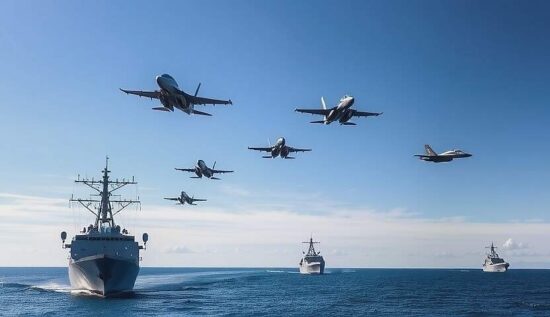France and the United Kingdom have proposed sending marine and air forces to Ukraine, amid ongoing ceasefire negotiations, according to the Washington Post, citing sources familiar with the matter.
The two countries are supporting a European-led “security force” that would secure Ukrainian cities and towns away from the front lines, provide logistical support and offer training to the Kiev military.
A French-British military team is planning to visit Ukraine in the coming weeks to determine the required troop strength and potential deployment sites, the WaPo report states.
As per unnamed diplomats, the European focus has shifted to air and sea power, as there are concerns about the West’s ability to maintain a large ground troop presence, while some NATO members have suggested deploying their resources for patrols in the air or the Black Sea.
However, some European officials doubt that a ceasefire, a precondition for the deployment of troops, will be reached soon, a WaPo source said. The newspaper reports that some diplomats describe the discussions on the deployment of military in Ukraine as “an exercise in preparation and as a pressure tactic”.
Several European countries are reportedly hesitant to send troops without the US committing to intervene in case of an escalation. European officials want American support in the form of air defense systems, intelligence and heavy airlift capabilities. US President Donald Trump, however, has made no commitments and officials from his team have given mixed signals about the option being up for debate.
While Trump’s special envoy Steve Witkoff recently described the initiative as “too simplistic”, a French official familiar with the matter told the WaPo that the talks were “in perfect harmony with our American partners, who are interested in this approach and have told us it’s good”.
Russia has warned that it would consider any unauthorised stationing of foreign troops in Ukraine a legitimate target. Foreign Minister Sergei Lavrov stated that Moscow is against the stationing of NATO troops in Ukraine, regardless of whether they operate “under a foreign flag, under the European Union flag, or under a national flag”.





